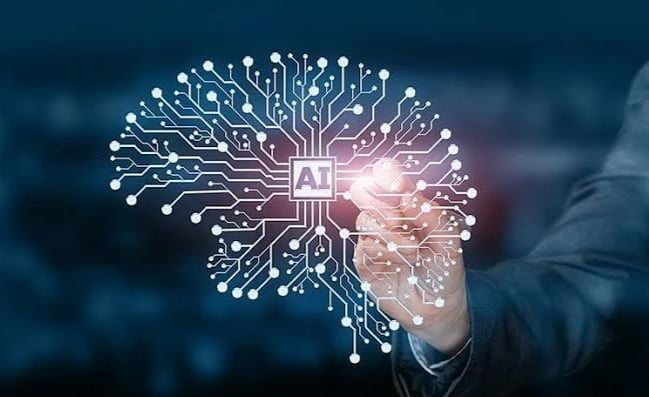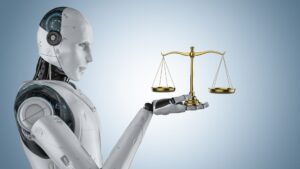Artificial intelligence (AI) is changing many aspects of people’s lives, from improving medical diagnostics and banking services to automating manufacturing processes and making learning more personal. As artificial intelligence gets smarter, it becomes more important to think about what’s right and what’s wrong in its development and use. The goal of ethical AI development is to ensure that technology is created and used in a way that upholds human rights and ideals. This promotes honesty, responsibility, and openness.
1. The Importance of Ethical AI
As artificial intelligence systems become increasingly important, it is also important to address the social problems they cause. If left unchecked, AI can increase biases, make unclear choices, and negatively impact privacy and security. Ethical AI development ensures that AI systems follow ethical rules that everyone agrees on, and ensures that the technology is useful to society. This creates trust between users and partners.
2. Core Principles of Ethical AI
Ethical AI development is based on a core set of concepts. Some of these are honesty, truth, and justice, others do not harm, and take responsibility and privacy. Transparency means being open about how AI systems make choices and work. For AI systems to be impartial and fair, they must operate without bias and provide all users with the same opportunities. Ensuring that AI systems do not cause harm to people or society is what non-harm means. Responsibility refers to taking responsibility for the impact of artificial intelligence. Finally, privacy must be protected by ensuring that any personal information used by AI is kept secure and handled with care.
3. Develop Ethical Rules for AI
A growing number of companies are developing AI ethics rules to guide their development processes. The purpose of these guidelines is to clarify how to deal with ethical issues in artificial intelligence projects. They often include rules for handling data, ways to hold people accountable, and ways to deal with potentially biased AI programs. Following these guidelines can help companies remain ethical and encourage developers and other stakeholders to be more ethically aware.
4. Eliminate Biases in AI
One of the most difficult parts of making AI more ethical is dealing with and mitigating the shortcomings that can arise in AI systems. These biases can come from the data used to build the AI model or from the way the algorithms are built. Some of the best ways to reduce bias include using a variety of data sets, implementing extensive testing steps to detect and resolve bias, and being open-minded about how AI systems make decisions. Companies can also hire experts from different fields, such as ethicists and social scientists, to review and advise on AI projects.
5. Ensure Openness and Responsibility
AI users need to be able to trust and understand it, so AI must be open and responsible. Documenting all phases of AI development and making this information available to the right people can help developers be more open. For accountability reasons, it is important to develop methods for auditing AI systems and ways to address any issues. As part of this, clear roles and responsibilities should be established for all choices related to AI systems.
6. Artificial Intelligence and Privacy and Security
Responsible AI development must protect privacy and security at all costs. End-to-end encryption, strict data access protocols, and regularly updating security measures to protect against emerging threats are all examples of best practices. Privacy impact assessments should be conducted at various stages of AI development to identify and resolve issues that could impact personal data.
7. Keep Learning and Improving
AI technology is constantly changing, and so is the way we behave ethically. To do this, you must commit to continually learning and improving. Developers and organizations should stay abreast of the latest research on ethical AI and participate in forums and conversations about these issues. Regular training programs for AI writers can also help ensure ethical issues become a normal part of the development process.
8. Ways to Collaborate on Ethical AI
Approaches that bring together many different groups, including governments, universities, companies, and ordinary people, can greatly contribute to the ethical development of AI. Collaborating in this way can help consolidate standards and share the best ways of doing things across industries and domains. To get a more complete picture of how AI impacts society, multi-stakeholder projects are also available. This can help people make better, more ethical decisions.
9. Rules Section
Self-regulation is important, but written rules are also needed to ensure AI is developed at scale and in an ethical manner. A growing number of governments and foreign groups are setting regulations that require ethical considerations in the development and use of artificial intelligence. By establishing these rules, ethical practices will be standardized and used equally across all AI projects.
Conclusion
Ethical AI development is not just a technical need; It is also a fundamental factor in determining how technology affects people. Developers and groups can ensure that their AI systems are not only new and useful, but also fair, clear, and respectful of human values by following best practices for ethical AI. As artificial intelligence continues to improve, adhering to these ethical principles is important to ensure that the technology benefits everyone.
FAQs
1. Why are the ethics of artificial intelligence important?
Ethical AI is important because it ensures that AI technology is used in a way that helps everyone and harms or harms no one. It helps stop things like discrimination, invasion of privacy, and failure to take responsibility, which can cause harm and distrust.
2. What can be done to address the shortcomings of artificial intelligence?
Eliminating bias in AI requires several different approaches, such as using a broader range of data to train algorithms, integrating methods for detecting and mitigating bias during development, and keeping a close eye on AI applications over time to ensure they always remain fair.
3. Why is openness and honesty in AI important?
Transparency in AI means that users and other stakeholders must be able to understand and be informed about how AI systems work and the choices they make. This includes being transparent about how data is used, how choices are made, and why AI-driven outcomes happen the way they do.
4. How can companies ensure that AI is used fairly?
Organizations can ensure that AI is used ethically by developing and following clear ethical standards, conducting regular ethics audits, involving diverse teams in AI development, and collaborating with external experts or ethics committees.
5. What role does privacy play in ethical AI?
Privacy is a very important part of good artificial intelligence. It ensures that personal information used to train and run artificial intelligence systems remains secure and only used for its intended purpose. Complying with data security regulations and laws is also part of protecting privacy.
6. Can ethical rules for artificial intelligence be formulated?
Yes, laws and regulations at national and international levels can and are used to control the ethics of AI. Rules need to be developed to ensure that the development and use of AI comply with some basic ethical principles.



